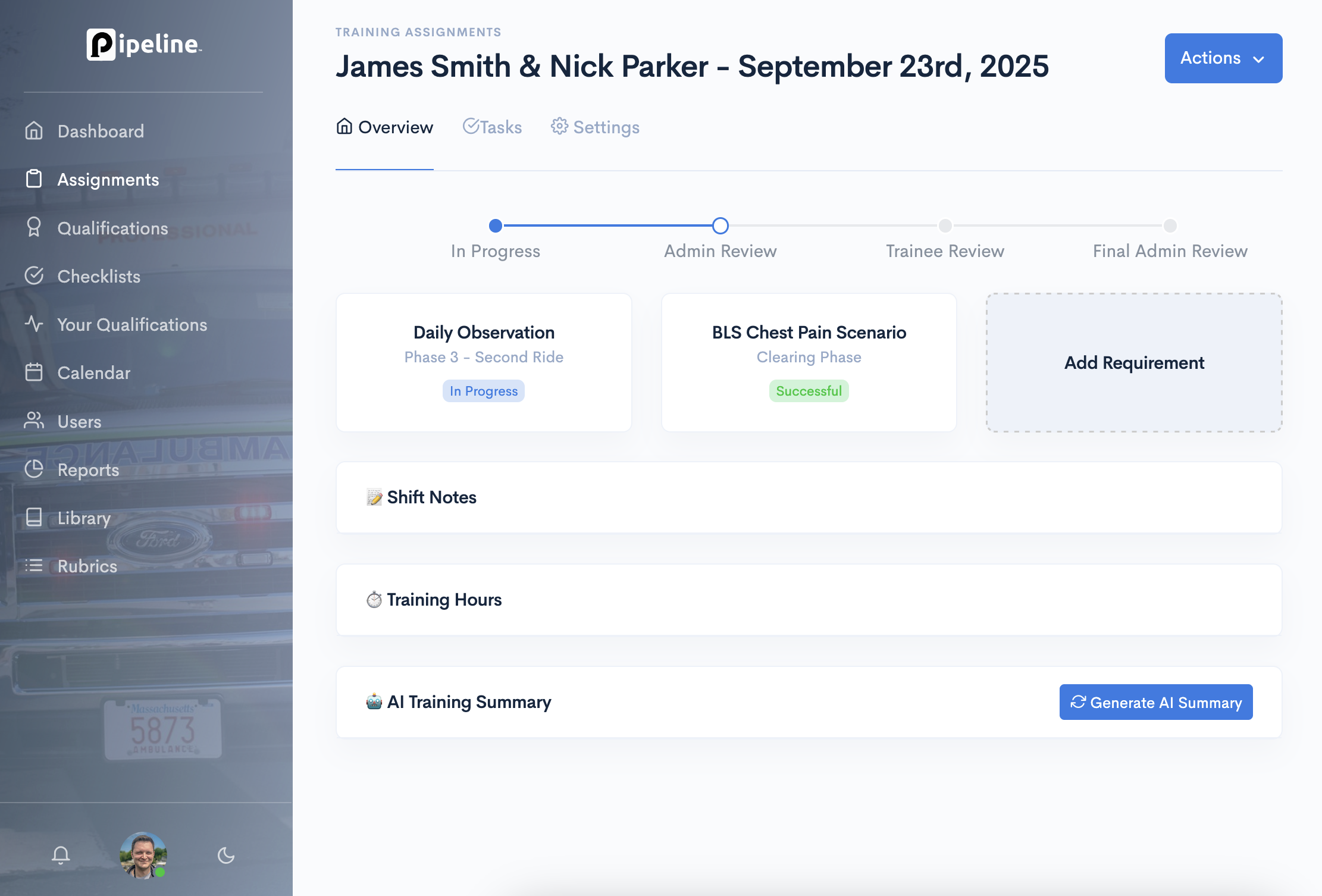Traditional wellness programs respond after problems surface. Pipeline analyzes patterns in training, performance, and behavior to identify wellness concerns early, sending alerts to management while connecting mental health support directly to improved training outcomes.

Mental health directly impacts training performance and patient care. Pipeline connects wellness indicators with training data to identify concerns early and provide targeted interventions that improve both provider wellbeing and professional competency.
| The Old Way | The New Way |
|---|---|
|
|
|
|
|
|
|
|
|
|
|
|
|
|
|
|
|
|
Wellness issues are only addressed after they become serious problems affecting performance or attendance.
Pattern analysis identifies early warning signs through training performance and engagement metrics before issues escalate.
No connection between mental health support and professional development - they exist in separate silos.
Integrated wellness-training insights show how mental health impacts competency and provide targeted interventions.
Management has no visibility into provider wellness until crisis situations require intervention.
Automated alerts notify leadership of wellness concerns based on data patterns, enabling proactive support.
Wellness programs rely on providers self-reporting issues, which often happens too late or not at all.
Objective data analysis identifies wellness trends without requiring providers to self-disclose personal struggles.
No systematic way to identify which providers are at higher risk for burnout or mental health challenges.
Comprehensive pattern analysis across training, performance, and behavioral indicators highlights at-risk providers.
Wellness interventions are generic and not tailored to individual provider needs or professional development goals.
Personalized wellness support connected to specific training outcomes and competency development paths.
Analyze training performance, behavioral patterns, and engagement metrics to identify wellness concerns before they escalate. Get alerts when providers show early warning signs rather than waiting for crises.
Understand how wellness impacts competency development and field performance. Use this connection to provide targeted support that improves both mental health and professional growth.
Automated notifications to leadership when wellness indicators suggest intervention is needed. Enable early support rather than reactive crisis management.
Provider wellness is evolving beyond traditional EAP programs. Pipeline is pioneering data-driven approaches that identify issues early and connect mental health with professional development for better outcomes.
We're experts in helping public sector organizations implement initiatives that drive real results.
